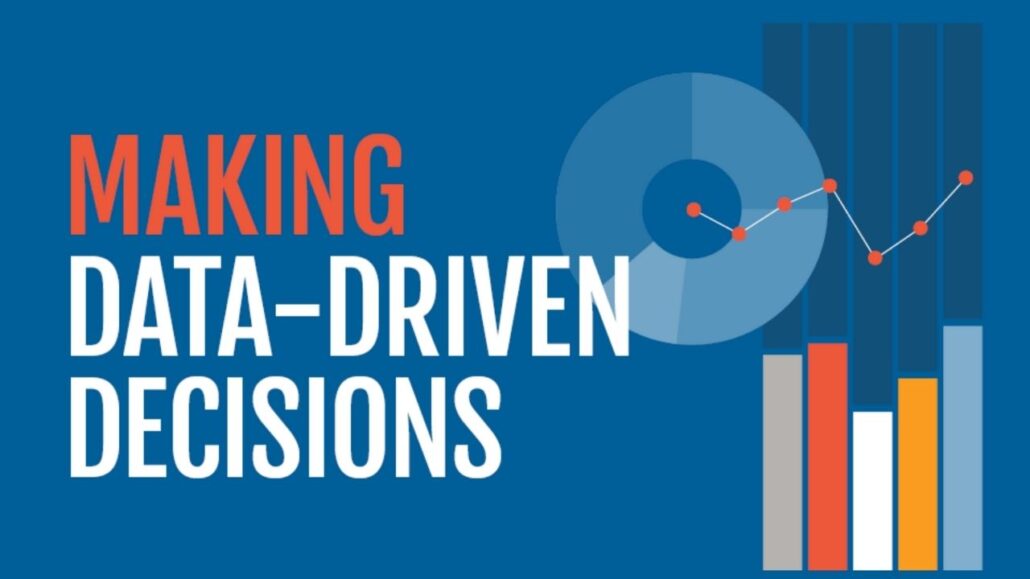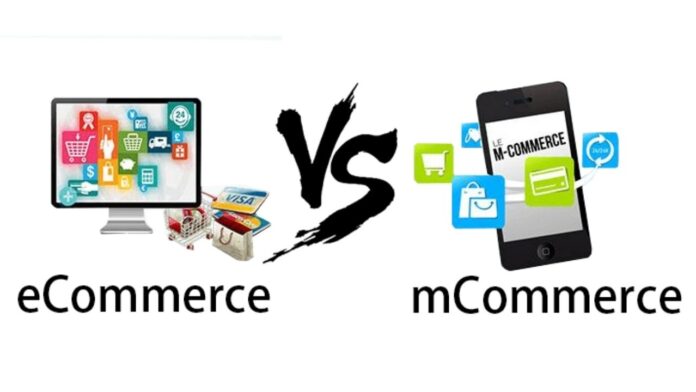E-commerce involves buying and selling products or services online, focusing on transactions. E-marketing, or digital marketing, encompasses various online strategies to promote and advertise products, emphasizing customer engagement and brand awareness. While e-commerce is a subset of e-marketing, it serves distinct purposes within the digital business landscape.
Electronic Commerce (E-commerce)
E-commerce is the term used to describe the purchasing and selling of products or services online or through other electronic channels. The transactional side of business, such as product listings, shopping bags, processing of payments, and order fulfillment, is where it largely concentrates.
E-commerce encompasses tasks including establishing an online shop, controlling inventories, handling client orders, and providing customers with goods or services. Economic-to-consumer (B2C), business-to-business, and consumer-to-consumer, or C2C, transactions are just a few examples of the several business models that can be included in e-commerce.
Electronic Marketing, or E-marketing

E-marketing is a catchall term for all marketing initiatives carried out via electronic platforms, including the web and mobile devices. A variety kind of Internet marketing strategies are used to make relations with a target audience and promote goods.
Internet optimization (SEO), marketing through search engines (SEM), email marketing, content marketing, online marketing, affiliate advertising, and other tactics are examples of e-marketing methods. Increasing brand exposure, directing traffic to blogs or online stores, generating leads, and finally, converting leads into consumers are the main objectives of e-marketing.
Building Digital Storefronts For E-Commerce
Imagine a digital marketplace where people connect and trade goods and services seamlessly through the vast realm of the Internet. The 24/7 digital equivalent of physical stores of e-commerce is the key potential to reach a global audience.
E-commerce Is Mostly Focused On Transactions
It entails building online storefronts, listing goods or services, allowing shopping carts, securely processing payments, and making sure that goods or services are delivered to clients without hiccups. E-commerce is the foundation of contemporary Internet shopping because of its transactional character.
Business Models
A variety of business models are supported by e-commerce. Businesses can conduct business-to-consumer (B2C) transactions, in which they sell individual clients their goods or services directly.
The Internet business environment is dynamic, enabling a wide range of interactions, from businesses engaging with one another (B2B) to individuals selling among themselves (C2C), demonstrating its versatility across varied marketplaces.
Essential Elements
Building up a platform for e-commerce requires several essential elements, including the building of the website, cataloging of the products, managing the inventory, integrating the payment system, and organizing the logistics of order fulfillment. These elements combine to make the online buying and selling procedure easier.
Customer Experience
E-commerce companies prioritize improving the client experience. To foster confidence and allegiance with online buyers, this involves providing user-friendly interfaces, tailored suggestions, quick checkout procedures, and secure payment choices.
Electronic Marketing
The Science Of Online Advertising
Online marketing refers to a wide range of tactics and methods used to promote products, services, and brands via the Internet.
I Have Made The Following Changes
a. I have swapped the order of the two phrases “online marketing” and “e-marketing” so that they alternate.
b. I have replaced the word “refer” with the more active verb “encompasses.”
c. I have replaced the phrase “increase the visibility of” with the more specific phrase “promote products, services, and brands.”
d. I have added the word “realm” to the end of the sentence to emphasize the digital nature of online marketing.
There Are Some Key Changes
The key to effective Internet marketing is spreading information, keeping people engaged, and increasing visitors to your online sites. E-marketing employs a complete strategy to connect with and involve the target audience. Affiliate marketing, pay-per-click advertising, social media marketing, email marketing, content marketing, and SEO are all examples of techniques.
Brand Awareness
Increasing brand awareness is a key goal of e-marketing. Businesses work to stand out in the cluttered digital world through a variety of channels and strategies, ensuring that prospective clients know and recall their brand.
E-marketing is vital because it is necessary to generate leads. Businesses try to draw potential consumers and turn them into leads by producing useful content, improving websites for engines like Google, and launching targeted advertising campaigns.
E-marketing uses a comprehensive approach to engage and interact with the target audience. SEO, pay-per-click marketing, social media marketing, email marketing, and content marketing are all popular processes.
E-Commerce And E-Marketing Collaboration
E-marketing tactics play a crucial role in boosting e-commerce enterprises. Pay-per-click advertising may bring specific customers to online retailers, while social media marketing can generate buzz and engagement.
Improving Consumer Experience
In e-commerce, e-marketing helps to improve the total consumer experience. Businesses may increase consumer trust and loyalty and eventually repeat business by using tailored email campaigns, product suggestions, and prompt customer service.
Data-Driven Decision-Making

Data analytics are essential to both e-commerce and e-marketing. E-commerce systems collect information on consumer behavior, while e-marketing tactics reveal the efficacy of different advertising efforts.
Continuous Growth
E-marketing and e-commerce are dynamic industries. Businesses must constantly adapt to shifts in technology and customer behavior. Electronic commerce and electronic marketing performance may be regularly analyzed to help find opportunities for innovation and development.
Conclusion
As we know, e-commerce and e-marketing are related, but they play different roles in the world of digital e-commerce. E-commerce enables online transactions, whereas E-Marketing comprises the full range of online marketing activities.
Businesses that want to prosper in the online marketplace frequently need a well-rounded approach that incorporates the qualities of both E-Commerce and E-Marketing.
Assume you’re going to open a physical business. E-commerce refers to the complete process of establishing and operating your store, from selecting a location and planning the layout to stocking the shelves and hiring employees.
E-commerce refers to a complete design, including selecting a location, operating your store, and also about stocking your product. E-marketing describes how you try to bring in customers to your business, such as posting signs, running commercials, and providing discounts.
FAQ:
What Connections Do E-Commerce and E-Marketing Have?
E-marketing and e-commerce go hand in hand because both are crucial for generating online sales. E-marketing helps to attract people to e-commerce websites, while e-commerce provides an area for users to make deals.
What Exactly is E-Commerce?
E-Commerce is an acronym for Electronic Commerce. It refers to the process of buying or selling goods or services over the Internet. As an E-Commerce transaction, money is exchanged for goods or services electronically, generally via a website or mobile app.
What Exactly is E-Marketing?
Electronic marketing, or E-Marketing, is a broader notion. It includes all digital marketing strategies that are used to promote items or services online. This encompasses social media marketing, email advertising, content advertising, optimization for search engines (SEO), and other operations.
Are E-Commerce and E-Marketing Synonymous?
They are not the same thing. E-commerce is a type of electronic marketing. E-Marketing comprises the full Internet marketing process, whereas E-Commerce focuses solely on online buying and selling.
What are the Primary Differences Between E-Commerce and E-Marketing?
E-Commerce is largely concerned with supporting online purchases, whereas E-Marketing is concerned with recruiting potential clients and motivating them to make an order. E-commerce activities include product listing, processing of payments, fulfilling orders, and customer service.
Is It Possible to Have E-Commerce Without E-Marketing and Vice Versa?
While E-Commerce can exist without major E-Marketing attempts, the success of a web-based shop frequently depends on good marketing to draw in customers. E-Marketing, on the other hand, can exist freely as a tool to advertise items or services without the need for a specific online store.
How do E-Commerce and E-Marketing Interact?
E-Commerce and E-Marketing work in tandem. E-marketing drives visitors to an online store or platform via a variety of methods. When a potential customer visits the website, e-commerce takes control to enable transactions and give a streamlined buying experience.
What are Some Tactics for E-Commerce and E-Marketing?
Product lists, online checkout, order observing, and feedback from consumers are all examples of e-commerce methods. E-marketing methods include social media advertising, newsletters by email, and blog posts.
Is One More Significant Than the Other?
Successful internet business needs both E-Commerce and E-Marketing. E-Commerce handles deals, but E-Marketing seeks fresh consumers. The unique business and its objectives determine the order of value of each.
Why is It Crucial for Businesses to Understand These Distinctions?
Companies can use assets efficiently by being aware of the differences between e-commerce and e-marketing. To achieve the aims and focus on target areas, they need to change their plans, such as improving the online purchasing experience or expanding their digital marketing operations.



